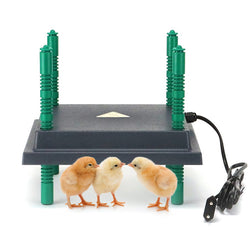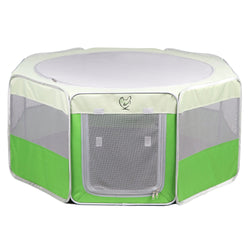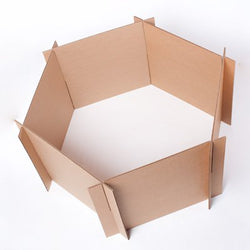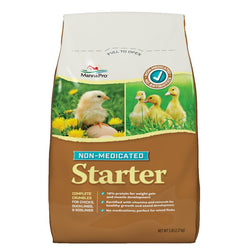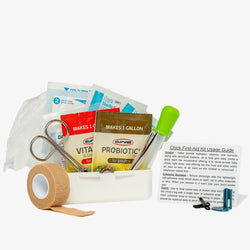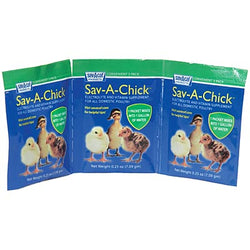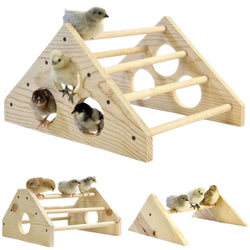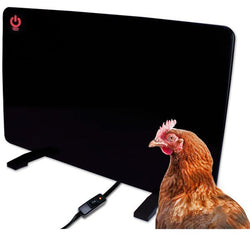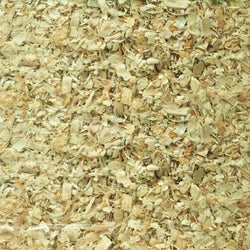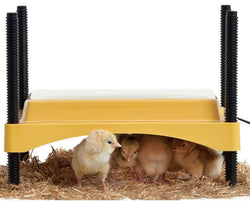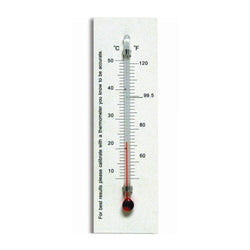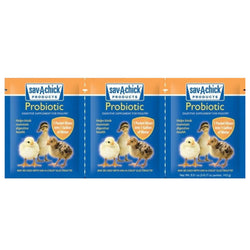What happens when frostbite strikes
Back to blog
Last week, with the windchill, it was 19 below zero here in Connecticut. I secured our coop and tucked everyone in for the night. The next morning, I was shocked to see one of my roosters, Luigi, with the worst case of frostbite I have ever seen.
The storm that night was hectic. The winds whipped the cold all around the coop, and at some point in the night, the door I thought I'd latched securely whipped open. By morning, I was surprised to see my flock loose in the yard scratching at the frozen earth. I quickly inspected and found that while the girls hadn't a feather out of place, poor Luigi's comb had a bad case of frostbite. I imagined what a story he might tell me:
The damp, icy air quickly filled the coop. I jumped into action, puffing up my chest, pulling my girls close on the roost. I opened my big, strong wings and tucked hens underneath, helpless to protect my delicate comb and wattles from the elements. I stood firm, though, against the weather to protect my flock. I would have given my life, if it had been required.
Yes, he is that amazing of a boy!

That morning, I gave the veterinarian a quick call and we had two options that would result in the same likely outcome. Frostbite is indicative of tissue death, and Luigi would lose his comb. I could have taken him to the vet to have the comb amputated (called "dubbing"), or care for it at home with the same outcome. I'm a veteran chicken keeper, seasoned in first aid, so I wasn't afraid of Option #2. I felt that Luigi was in no stress and the frostbite didn’t seem to be cause any pain. He was eating, drinking, scratching for bugs and tending to his ladies. I chose to treat him at home than stress him with a visit to the hospital.
In case a frostbitten comb turns up in your flock, I want to share with you what I did to help Luigi.
What to do about frostbite
- Clean up the frostbitten area. I chose to use Poultry Wound spray, which I always have on hand in case of emergencies. I chose this product because it is herbal and includes Comfrey. The Comfrey herb is great for healing wounds, reducing swelling and alleviating pain. I sprayed his injured areas well and just let it air dry. (You never want to squeeze or rub the injured tissue. If there is a blister, don’t pop that either.)
- Protect frostbitten tissue. When the wound spray dried, I slathered on a good coating of Comb and Wattle Wound Salve works well too.) Again, I chose this product because it is all-natural and includes some great herbs: Plantain, Yarrow and more Comfrey. I will reapply this every few days.
- Ward off infection. My go-to is RopaPoultry oregano oil plus . You mix it right into their water. Oregano has strong antibiotic-like magic to help ward off infection, plus RopaPoultry contains other natural astringents like cinnamon.
- Added extra vitamins to his diet. I like Sav-a-Chick Electrolytes and Vitamins because it is inexpensive and comes in single-use doses. Anytime a bird is stressed, giving them a bit of a boost is important.
Over the next few weeks, Luigi's frostbite will continue to shrink and die off, and eventually, the damaged area will fall off entirely. I was assured this is not as painful as it sounds. He really does seem okay and certainly loves the extra attention he has been getting!
While Luigi’s story gives an example of winter drama, there are ways to prepare your flock for routine winter health and to prevent frostbite. Good luck and stay warm!
